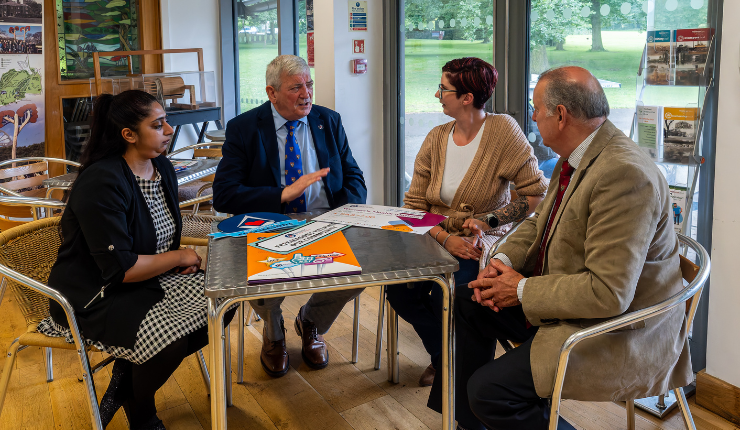Yorkshire West Riding
Children and Young People, Domestic abuse, Grants to charities

The £60,000 grant will fund the charity’s Key Change project designed to support 165 girls aged 11 to 18 who are facing or witnessing abusive relationships or are at high risk directly. The girls involved will share their knowledge with four peers and family members each, reaching an estimated 660 individuals. This includes situations involving intimate partner abuse or domestic abuse within the family home.
Women’s Health Matters prioritises reaching girls through schools in Leeds, particularly those located in the two per cent most deprived areas nationwide.
The project is focused on achieving three key outcomes for participants: girls are better able to identify and respond to abuse, have improved mental wellbeing, and have wider support networks. Topics covered reflect these goals, including identifying healthy versus unhealthy relationships, staying safe, and extending support networks. The programme also adapts to the specific needs of the girls, such as addressing recent requests for discussions on bullying, self-esteem, and navigating friendships.
The ages of 11 to 18 are a pivotal time for girls as they navigate relationships and may feel pressure to start them without having the confidence to express their needs. Refuge estimates that 20 per cent of children in the UK have lived with an adult perpetrating domestic abuse, while 41 per cent of UK girls aged 14 to 17 in intimate relationships have faced some form of sexual violence from their partner. Additionally, children in low-income households are three times more likely to experience domestic abuse (SafeLives, 2021). In 2018, Women’s Aid found one-third of teenage girls have been in an abusive relationship. Of those who said they haven’t, 64 per cent had experienced abusive behaviour without realising it.
The Key Change project collaborates closely with schools and Specialist Inclusive Learning Centres (SILCs) to identify girls who may be experiencing unhealthy relationships or exhibiting behaviours that suggest they may be struggling, such as anxiety, withdrawal, lack of confidence, or self-harming. The programme is carefully structured to draw on peer support, helping girls identify unhealthy relationships, build positive support networks, and improve their overall wellbeing.
The Key Change sessions focus on improving mental health, with an emphasis on enhancing communication skills and assertiveness and addressing anxiety, depression, self-harm, and identity issues. While not all girls are ready to share their stories in a group setting, one-to-one support is available when needed, particularly in cases involving sensitive topics like child sexual exploitation. Girls are actively involved in shaping the programme, sharing experiences, choosing focus areas, offering advice, and participating in confidence-building activities.
By supporting girls at a young age, Women’s Health Matters strives to prevent abuse from affecting their long-term futures. They aim to equip disadvantaged girls and young women with the skills necessary to avoid ongoing domestic abuse. This includes helping them recognise signs of abuse, understand healthy relationships, and build networks and friendships for support. Women’s Health Matters also focuses on boosting participants’ mental health and self-confidence, empowering them to leave abusive relationships in the future.
We’re very grateful to Yorkshire West Riding Freemasons for their generous grant which allows us to continue our vital project of protecting girls from abusive relationships. We know from feedback given by schools that girls who attend the project benefit from having space to talk about personal experiences and challenges outside of the classroom environment resulting in improved relationships, support networks, attendance and attainment. We are thrilled to be able to continue this work thanks to the Freemasons.
I’m very pleased that we have been able to help Women’s Health Matters with their hugely important project working with girls in schools at risk of involvement in abusive relationships. We live in a country where more than four out of ten teenage girls have faced violence from their partner. It is hard to imagine anything more essential than helping this project succeed.